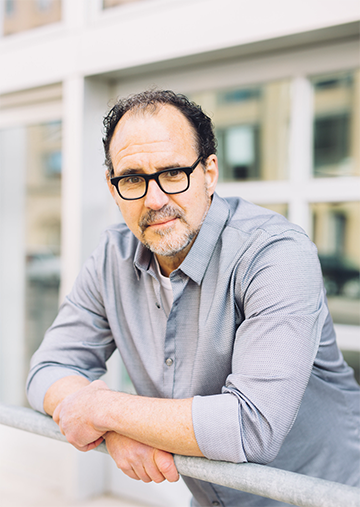
When theologian Greg Boyd addressed the question “Is God to Blame?” at Samford University Oct. 12, the timing seemed uncanny. His address, part of Samford’s Holley-Hull Lecture Series, followed weeks of high-profile human suffering, ranging from extreme weather disasters to a mass shooting, with countless personal tragedies in between. But, of course, the problem of evil, and God’s role in it, is always current. Boyd said it results not from creation, but from corruption of creation, and not from God’s will, but from God’s generosity in allowing humans an irrevocable free will of their own.
Boyd said Christians are hesitant to say that God can’t do something, so they’re stuck having to explain why God won’t do something in the face of suffering. “But, if you think through the implications of free will, you can say ‘God can’t,’ and you’re not limiting God’s power by doing that,” Boyd said. “You’re just saying that God chose to create this kind of world, where people have got irrevocable free will.” For love of God to be genuine, he said, it must be freely chosen or not chosen. In his understanding, then, “God isn’t morally culpable for the evil that we choose, because we’re the ones who choose it.”
Boyd often referred to the Holocaust as an example of incomprehensible suffering on a massive scale, but he also addressed the everyday suffering that leaves many Christians wondering if God is to blame. He said many Christians offer clichéd counsel meant to be supportive or hopeful, but which reflects a conviction that if God is good and all-powerful, then even the most horrifying events must be good. “If that’s the case,” Boyd said, “there is no evil,” but only, as some theologians conclude, a flawed human perspective.
Boyd observed that such responses can actually compound suffering, as in the case of a woman who struggled for years to become pregnant, finally received the miracle she prayed for, then lost her baby during childbirth. When she asked, “Why would God do this?” a theologian answered that God might be trying to teach her a lesson. Confronted by the image of such a cruel God, she lost her faith as well as her baby.
“Everything is affected by your picture of God,” Boyd said, “and this lady was given a picture of a God who would miraculously give you a child and kill your child to make a point, and not tell you what the point is.” Believing evil and suffering to be God’s plan for a greater good is not only “grotesque,” but also contrary to scripture,” Boyd said. He noted several instances of Jesus identifying evil, rebuking the sources of evil, and ministering to the suffering. “Never once does he say this is good,” Boyd said. Instead, “Jesus reveals what is good by healing the person.”
In the midst of suffering at any scale, Boyd urged Christians to distinguish between what is from God and what is the result of being “caught in the crossfire” between good and evil, and to believe that God is always on the side of good. “Always be looking for the hand of God,” Boyd said, not as the cause of suffering, but as the way to bring purpose and good out of it. “God wins in the end.”
The Howard L. and Martha H. Holley Lectures: New Testament Voices for a Contemporary World honor William E. Hull, former Samford provost and distinguished religion scholar.
